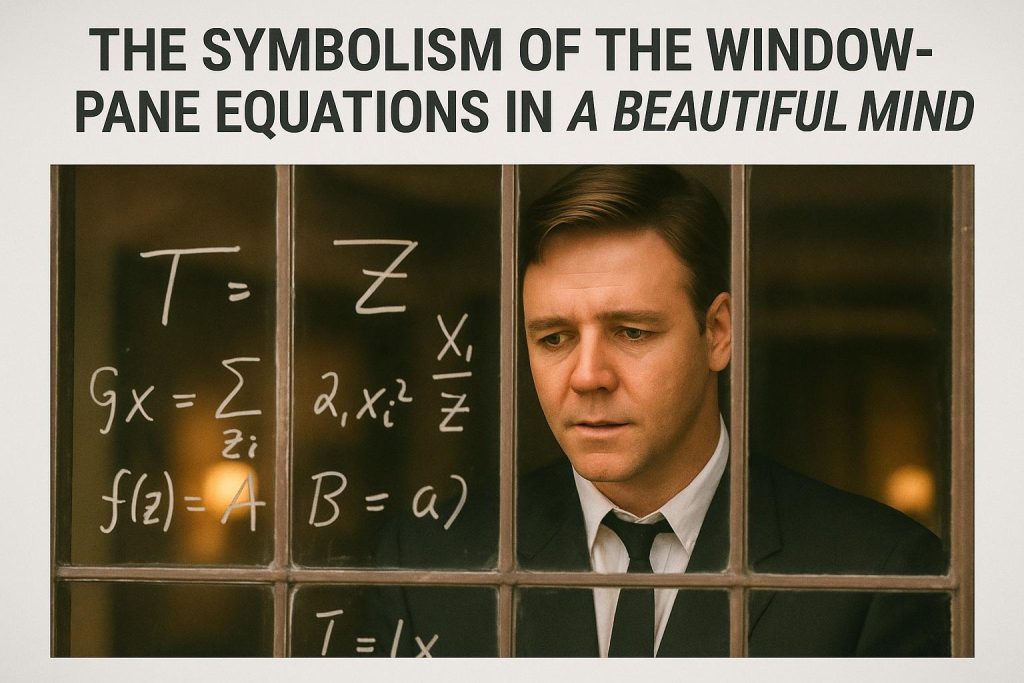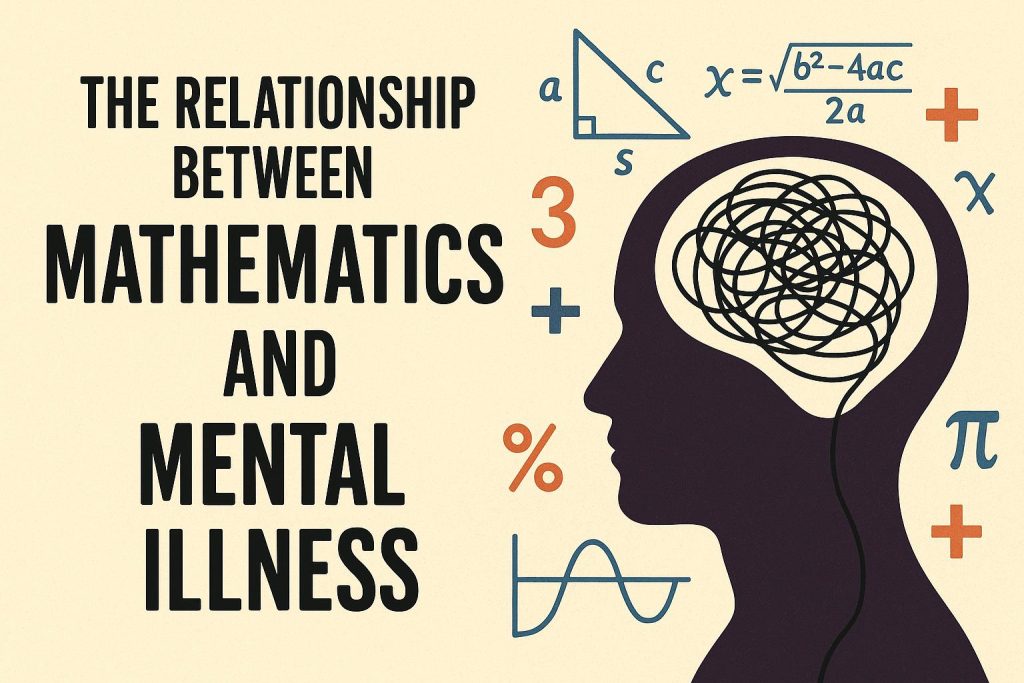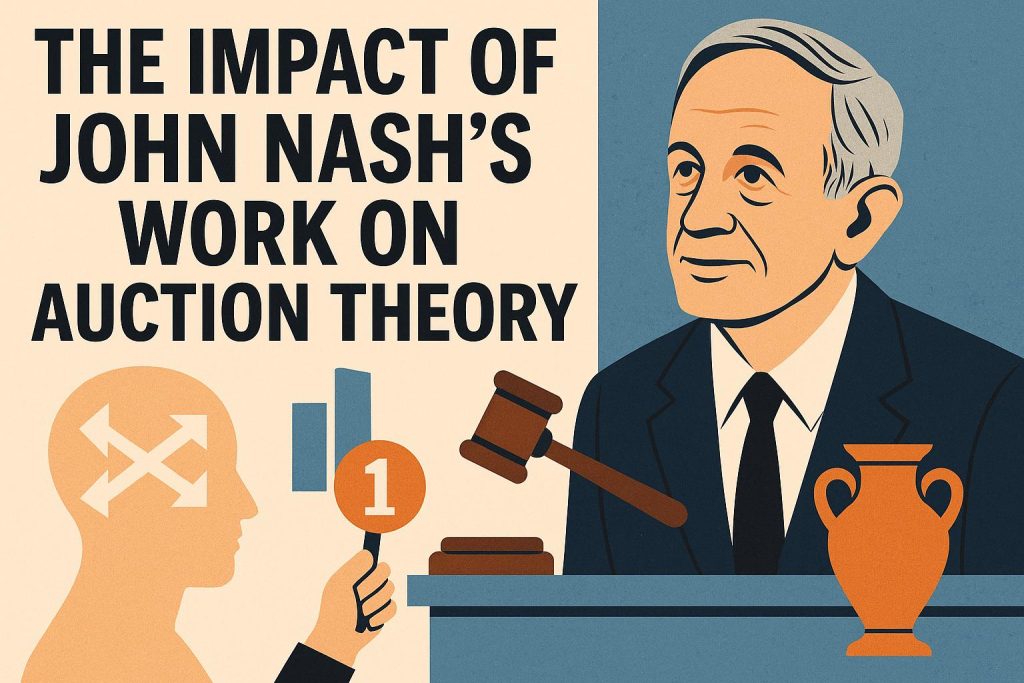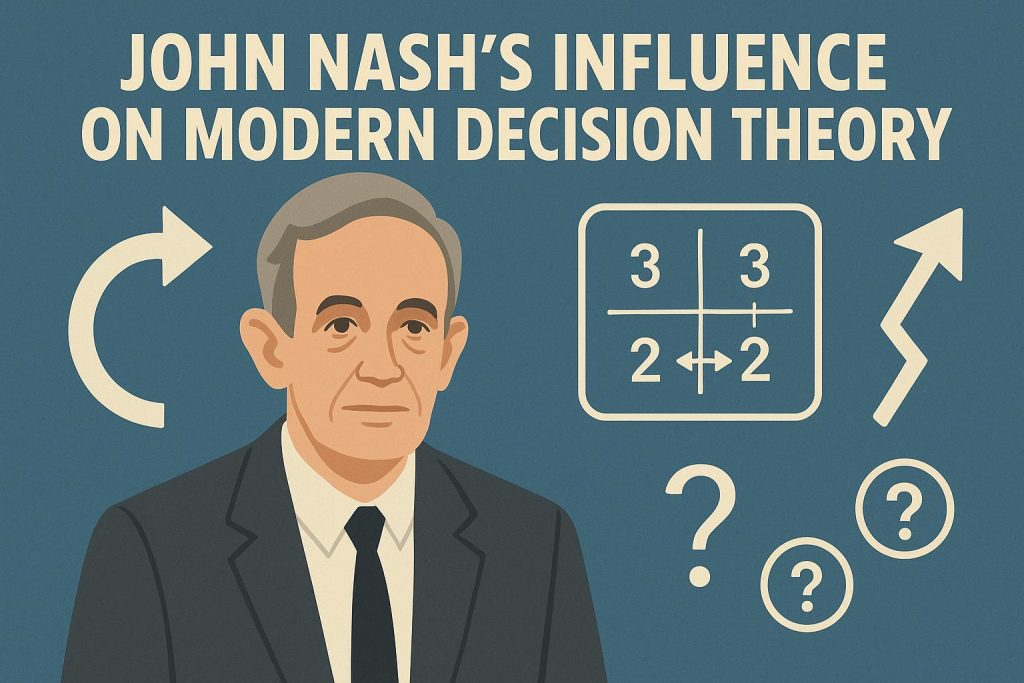The Role of Friendship in John Nash’s Recovery John Nash, the distinguished mathematician known for his foundational work in game theory, differential geometry, and partial differential equations, occupies a unique place in both scientific and cultural history. His intellectual achievements reshaped economics and mathematics in the twentieth century, yet his life was also marked by […]
Read MoreCategory: Uncategorized
The Symbolism of the Windowpane Equations in A Beautiful Mind
The Role of the Windowpane Equations in A Beautiful Mind In the film A Beautiful Mind, the life and work of mathematician John Nash are translated into images that make abstract reasoning visible. One of the most recognizable visual motifs is the series of equations Nash writes across the window of his Princeton dormitory room. […]
Read MoreHow John Nash Was Perceived by His Colleagues
Introduction to John Nash John Nash was a prominent mathematician renowned primarily for his work in game theory, for which he received the Nobel Prize in Economic Sciences in 1994. His contributions to mathematics and economics have been influential, leading to a substantial impact on how modern economic and strategic theories are developed. Despite his […]
Read MoreThe Relationship Between Mathematics and Mental Illness
The Connection Between Mathematics and Mental Illness The relationship between mathematics and mental illness is a topic of considerable interest within both the scientific and mathematical communities. This exploration delves into the cognitive and psychological aspects that define how these two distinct areas intersect. The intricate landscape involving mathematics and mental health highlights the delicate […]
Read MoreThe Legacy of Nash’s Work in Cryptography
Introduction to Nash’s Influence on Cryptography John Nash, a prominent figure celebrated for his groundbreaking work in game theory, has also made significant contributions to the field of cryptography. Though his work in cryptography isn’t as widely known as his achievements in game theory, Nash’s ideas have left a lasting impact on secure communication methods […]
Read MoreThe Impact of John Nash’s Work on Auction Theory
Introduction to John Nash’s Contributions John Nash, an acclaimed American mathematician, made groundbreaking contributions to game theory which have significantly influenced several academic fields, notably economics and auction theory. Nash’s innovative ideas fundamentally changed the way strategic interactions among agents are understood, providing profound insights into the mechanisms governing auctions and markets. The Concept of […]
Read MoreHow John Nash Overcame His Mental Health Struggles
Introduction John Forbes Nash Jr., an eminent American mathematician, has remained a significant figure in the fields of game theory, differential geometry, and partial differential equations. His inspiring story offers a unique glimpse into the profound challenges and triumphs he experienced throughout his life, including his highly publicized battle with mental illness. Nash’s life and […]
Read MoreThe Role of Psychiatry in Treating Schizophrenia
Understanding Schizophrenia Schizophrenia is a profoundly intricate mental health disorder that profoundly affects various facets of an individual’s life, including the ability to think clearly, regulate emotions, make informed decisions, and engage socially with others. It is marked by episodes of psychosis, which can manifest through symptoms such as hallucinations — sensory experiences that seem […]
Read MoreThe Depiction of Cold War Paranoia in A Beautiful Mind
The Depiction of Cold War Paranoia in A Beautiful Mind A Beautiful Mind, a film directed by Ron Howard, intricately explores the theme of Cold War paranoia by presenting the complex life of John Nash, a brilliant mathematician who battles with schizophrenia. This narrative is set against the historical backdrop of the Cold War, embedding […]
Read MoreJohn Nash’s Influence on Modern Decision Theory
Introduction to John Nash John Nash, a celebrated American mathematician, has left an indelible mark on modern decision theory. His groundbreaking work in mathematics and economics, particularly his development of the Nash Equilibrium, has significantly influenced strategies used in economics, evolutionary biology, and even in the realm of international relations. The Nash Equilibrium The concept […]
Read More









